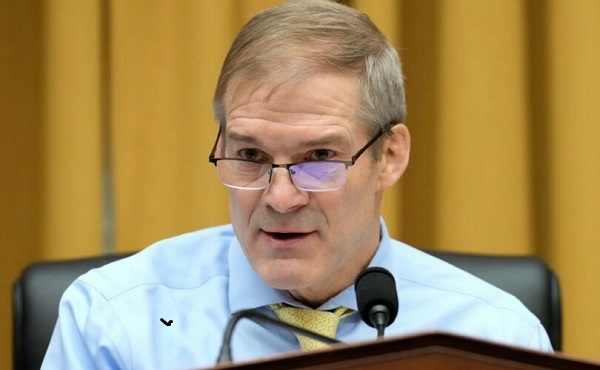Alberta
Business owners receive court approval to proceed with COVID lawsuit against Alberta gov’t

From LifeSiteNews
A judge ruled that businesses impacted by COVID lockdowns are allowed to claim compensation for harm and losses incurred due to the provincial chief medical officer’s illegal orders.
A class-action lawsuit on behalf of dozens of Canadian business owners in Alberta who faced massive losses or permanent closures due to COVID mandates has been given the go-ahead to proceed by a judge.
Lawyers representing businesses from Alberta-based Rath & Company announced in a press release on October 30 that it was “successful in its application for certification on behalf of Alberta business owners impacted by Covid-19 restrictions and closures imposed through Chief Medical Officer of Health (“CMOH”) Orders.”
“Justice Feasby of the Court of King’s Bench of Alberta released his decision today certifying the class action in Ingram v Alberta, 2024 ABKB 631,” Rath & Company said.
Lead counsel Jeffrey Rath said the Alberta government has been placed on notice for its actions against businesses during the COVID lockdown era.
The Rath lawsuit proposal names Rebecca Ingram, a gym owner, and Chris Scott, a restaurant owner, as “representative plaintiffs who suffered significant financial harm due to (former Alberta Chief Medical Officer) Dr. (Deena) Hinshaw’s Public Health Orders.”
According to Rath, the class action seeks to certify that “affected Alberta business owners who suffered losses due to the CMOH orders, which were found to be ultra vires — outside legal authority and therefore unlawful — under Alberta’s Public Health Act (“PHA”).
“As a result, the Court Certified multiple claims, including negligence, bad faith and misfeasance in public office. The Court allowed affected businesses to claim compensation for harm and losses incurred due to the illegal CMOH Orders including punitive damages,” Rath said.
Any business operator in Alberta from 2020 to 2022 who was negatively impacted by COVID orders is now eligible to join the lawsuit. Any payout from the lawsuit would come from the taxpayers.
The government’s legal team claimed that the COVID orders were put in place on a good faith initiative and that it was Alberta Health Services, not the government, that oversaw enforcement of the rules.
The Alberta Court of King’s Bench’s Ingram v. Alberta decision cast into doubt all cases involving those facing non-criminal COVID-related charges in the province, allowing the class action to get this far.
As a result of the court ruling, Alberta Crown Prosecutions Service (ACPS) said Albertans facing COVID-related charges will not be convicted but instead have their charges stayed.
Thus far, Dr. Michal Princ, pizzeria owner Jesse Johnson, Scott, and Alberta pastors James Coates, Tim Stephens, and Artur Pawlowski, who were jailed for keeping churches open under then-Premier Jason Kenney, have had COVID charges against them dropped due to the court ruling.
Under Kenney, thousands of businesses, notably restaurants and small shops, were negatively impacted by severe COVID restrictions, mostly in 2020-21, that forced them to close for a time. Many never reopened. At the same time, as in the rest of Canada, big box stores were allowed to operate unimpeded.
Alberta
Alberta mother accuses health agency of trying to vaccinate son against her wishes

From LifeSiteNews
Alberta Health Services has been accused of attempting to vaccinate a child in school against his parent’s wishes.
On November 6, Alberta Health Services staffers visited Edmonton Hardisty School where they reportedly attempted to vaccinate a grade 6 student despite his parents signing a form stating that they did not wish for him to receive the vaccines.
“It is clear they do not prioritize parental rights, and in not doing so, they traumatize students,” the boy’s mother Kerri Findling told the Counter Signal.
During the school visit, AHS planned to vaccinate sixth graders with the HPV and hepatitis B vaccines. Notably, both HPV and hepatitis B are vaccines given to prevent diseases normally transmitted sexually.
Among the chief concerns about the HPV vaccine has been the high number of adverse reactions reported after taking it, including a case where a 16 year-old Australian girl was made infertile due to the vaccine.
Additionally, in 2008, the U.S. Food and Drug Administration received reports of 28 deaths associated with the HPV vaccine. Among the 6,723 adverse reactions reported that year, 142 were deemed life-threatening and 1,061 were considered serious.
Children whose parents had written “refused” on their forms were supposed to return to the classroom when the rest of the class was called into the vaccination area.
However, in this case, Findling alleged that AHS staffers told her son to proceed to the vaccination area, despite seeing that she had written “refused” on his form.
When the boy asked if he could return to the classroom, as he was certain his parents did not intend for him to receive the shots, the staff reportedly said “no.” However, he chose to return to the classroom anyway.
Shortly after, he was called into the office and taken back to the vaccination area. Findling said that her son then left the school building and braved the sub-zero temperatures to call his parents.
Following his parents’ arrival at the school, AHS claimed the incident was a misunderstanding due to a “new hire,” attesting that the mistake would have been caught before their son was vaccinated.
“If a student leaves the vaccination center without receiving the vaccine, it should be up to the parents to get the vaccine at a different time, if they so desire, not the school to enforce vaccination on behalf of AHS,” Findling declared.
Findling’s story comes just a few months after Alberta Premier Danielle Smith promised a new Bill of Rights affirming “God-given” parental authority over children.
A draft version of a forthcoming Alberta Bill of Rights provided to LifeSiteNews includes a provision beefing up parental rights, declaring the “freedom of parents to make informed decisions concerning the health, education, welfare and upbringing of their children.”
Alberta
Alberta’s fiscal update projects budget surplus, but fiscal fortunes could quickly turn

From the Fraser Institute
By Tegan Hill
According to the recent mid-year update tabled Thursday, the Smith government projects a $4.6 billion surplus in 2024/25, up from the $2.9 billion surplus projected just a few months ago. Despite the good news, Premier Smith must reduce spending to avoid budget deficits.
The fiscal update projects resource revenue of $20.3 billion in 2024/25. Today’s relatively high—but very volatile—resource revenue (including oil and gas royalties) is helping finance today’s spending and maintain a balanced budget. But it will not last forever.
For perspective, in just the last decade the Alberta government’s annual resource revenue has been as low as $2.8 billion (2015/16) and as high as $25.2 billion (2022/23).
And while the resource revenue rollercoaster is currently in Alberta’s favor, Finance Minister Nate Horner acknowledges that “risks are on the rise” as oil prices have dropped considerably and forecasters are projecting downward pressure on prices—all of which impacts resource revenue.
In fact, the government’s own estimates show a $1 change in oil prices results in an estimated $630 million revenue swing. So while the Smith government plans to maintain a surplus in 2024/25, a small change in oil prices could quickly plunge Alberta back into deficit. Premier Smith has warned that her government may fall into a budget deficit this fiscal year.
This should come as no surprise. Alberta’s been on the resource revenue rollercoaster for decades. Successive governments have increased spending during the good times of high resource revenue, but failed to rein in spending when resource revenues fell.
Previous research has shown that, in Alberta, a $1 increase in resource revenue is associated with an estimated 56-cent increase in program spending the following fiscal year (on a per-person, inflation-adjusted basis). However, a decline in resource revenue is not similarly associated with a reduction in program spending. This pattern has led to historically high levels of government spending—and budget deficits—even in more recent years.
Consider this: If this fiscal year the Smith government received an average level of resource revenue (based on levels over the last 10 years), it would receive approximately $13,000 per Albertan. Yet the government plans to spend nearly $15,000 per Albertan this fiscal year (after adjusting for inflation). That’s a huge gap of roughly $2,000—and it means the government is continuing to take big risks with the provincial budget.
Of course, if the government falls back into deficit there are implications for everyday Albertans.
When the government runs a deficit, it accumulates debt, which Albertans must pay to service. In 2024/25, the government’s debt interest payments will cost each Albertan nearly $650. That’s largely because, despite running surpluses over the last few years, Albertans are still paying for debt accumulated during the most recent string of deficits from 2008/09 to 2020/21 (excluding 2014/15), which only ended when the government enjoyed an unexpected windfall in resource revenue in 2021/22.
According to Thursday’s mid-year fiscal update, Alberta’s finances continue to be at risk. To avoid deficits, the Smith government should meaningfully reduce spending so that it’s aligned with more reliable, stable levels of revenue.
Author:
-

 Aristotle Foundation2 days ago
Aristotle Foundation2 days agoToronto cancels history, again: The irony and injustice of renaming Yonge-Dundas Square to Sankofa Square
-

 conflict2 days ago
conflict2 days agoUS and UK authorize missile strikes into Russia, but are we really in danger of World War III?
-

 armed forces2 days ago
armed forces2 days agoJudge dismisses Canadian military personnel’s lawsuit against COVID shot mandate
-

 Business1 day ago
Business1 day agoCBC’s business model is trapped in a very dark place
-

 International1 day ago
International1 day agoElon Musk, Vivek Ramaswamy Outline Sweeping Plan to Cut Federal Regulations And Staffing
-

 Alberta19 hours ago
Alberta19 hours agoAlberta fiscal update: second quarter is outstanding, challenges ahead
-

 Energy1 day ago
Energy1 day agoWhat does a Trump presidency means for Canadian energy?
-

 Censorship Industrial Complex23 hours ago
Censorship Industrial Complex23 hours agoCongressional investigation into authors of ‘Disinformation Dozen’ intensifies






